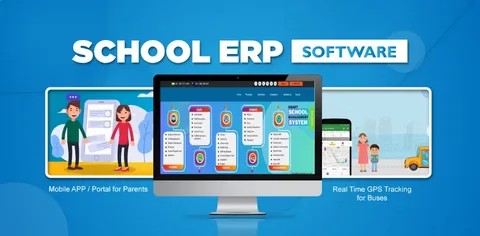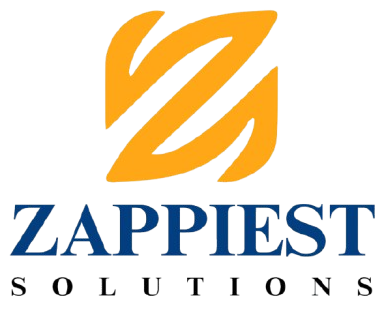
Technology is reshaping the future of school administration as education gradually moves into the digital world. Ultimately, one of the most significant innovations of all are Enterprise Resource Planning (ERP) systems, integrated software platforms that consolidate and expedite the various functions of an educational entity. From student records to human resources, finance to communication, ERP of school solutions are transforming the way schools operate enabling them to better focus on their core mission: education.
Why Schools Need a Complete Technology Makeover
The ones followed by the schools, traditional methods of management—characterized by paper-based processes, disconnected systems, administrative redundancies—are increasingly unsustainable in a fast-paced world. As schools have to contend with expanding student populations, growing academic programs, and increasing demands from parents and regulators, schools must acquire powerful, scalable tools that excel at dealing with complexity.
How ERP systems are transforming school operations
ERP covers several school functions under one umbrella — academics, administration, finance, human resources, transport and even library services. Through this integration, all areas have real-time visibility and data accuracy. It smoothens admission cycles, makes student data management easier, streamlines fee collection, and has a more streamlined performance tracking.
Improving Communication and Engagement
Better Communication: One of the most underrated features of ERP systems Most ERP solutions today are bundled with portals/mobile apps to connect teachers, students & parents. Instant notifications can be shared, be it a progress report attendance or even a circular with just a click. This kind of real-time interplay not only ensures that everyone is aware of developments and what remains to be done but promotes a culture of engagement and accountability. Parents become more engaged in their child’s education, teachers can address issues before they rear their ugly heads, and students get timely feedback and support.
Data-Driven Decision Making
ERP systems provide dashboards and reports that help enable administrators gain insights into enrollment trends, academic performance, budget utilization etc. By relying on data, schools can strategically plan, intervene early, and improve continuously. Rather than making guesses, school leaders can use real, data-informed information to allocate resources, develop new curriculum enhancements, or identify areas that need improvements in service delivery.
Laying the Groundwork for a More Intelligent Education System
ERP automation will continue to progress along with emerging technologies such as AI, machine learning, and predictive analytics. We will see future-ready ERP platforms equipped with personalized learning insights, automated routine assessments and even predictive modelling of student outcomes. These developments offer not only administrative convenience but pedagogical evolution. Schools which embrace and evolve with these changes now are future-proofing themselves.
Working to Connect Administration with Academics
This is in fact one of the long-standing problems that educational institutions face, departmental silos, administrative departments and academic staff are not on the same page. ERP systems can help bridge this gap by providing a unified platform that allows both sides to function collaboratively and access all necessary data without silos.
The ability to scale and customize far-reaching educational needs
Every institution be it a small private school, a sprawling university, or a vocational training center has its own unique needs. Top school ERPs of USA are designed for scalability and customization, giving schools the option to customize and adjust modules based on their unique needs. Whether it’s integration with national education boards, flexibility of multilingual student databases, or compliance with regional financial regulations, ERP platforms can suit the requirement.
Conclusion
Education Board ERP, the evolution of School Management Enterprise Resource Planning Systems is far more. In an increasingly digitalized, data-driven world, ERP solutions are the basis for the future – sustainable, scalable, and student-centered education.
Frequently asked questions
Q.1 What is the future of school administration with ERP systems?
In doing so, ERP systems are making school administration more efficient and transparent by automating the work flow, consolidating data, and allowing better communication with students, teachers & parents.
Q. 2 What are some important features that a future school ERP system must include?
Cloud accessibility, real-time data tracking, mobile compatibility, AI integration for analytics, and scalability to accommodate larger schools are all characteristics of a future-ready ERP.
Q. 3 Are ERP systems able to help the hybrid and online learning model?
Yes, most modern-day ERP systems support hybrid and online learning with the LMS integration and allows digital classrooms, online assessments and virtual attendance tracking, etc.
Q. 4 So, Is investing in ERP technology best for schools?
Absolutely. ERP systems typically have an initial cost, but over time they can reduce administrative expenses, save time, and improve resource allocation, making them a great investment.
Q. 5 Student and staff data is highly confidential and the security of school ERP systems needs to be discussed.Making it safe from the reach of unauthorized personnel Reputable ERP of school systems go through state-of-the-art encryption, role-based access, and regular security updates that work together to keep all student and staff data secure safe and avoid getting in the hands of unauthorized personnel.
